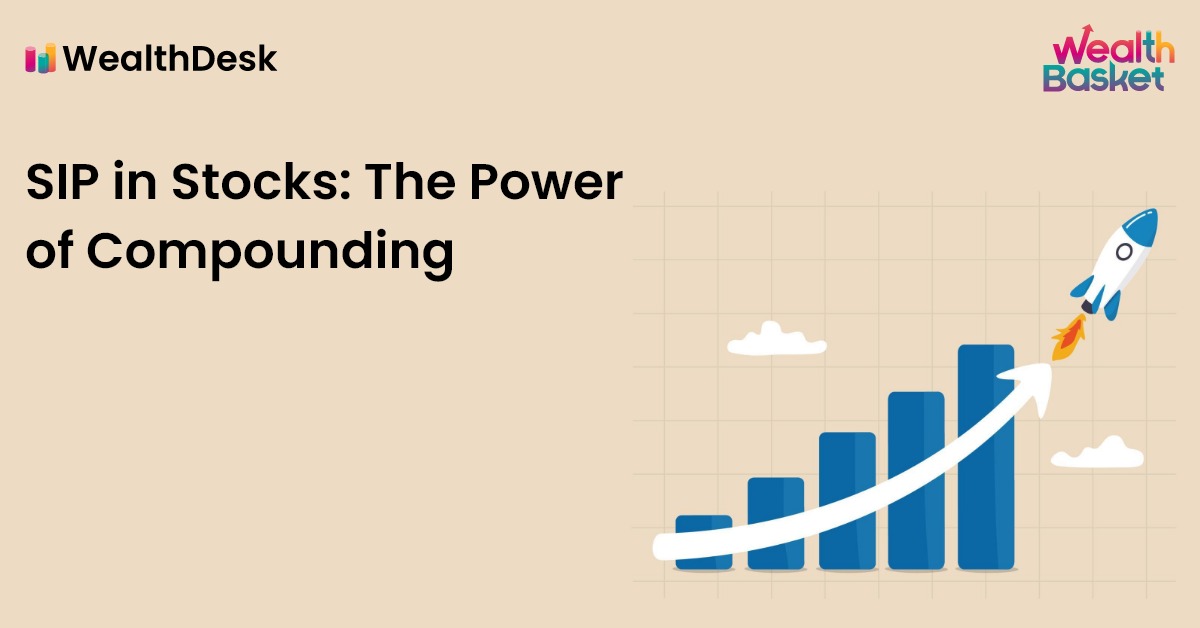Investing in mutual funds can either be done in a lump sum or SIP. Systematic Investment Plans (SIPs) are a great way to invest in mutual funds. SIPs allow you to set up an automatic investment plan where you can invest at predefined intervals with just one click of the button. Investing this way, rather than by choosing specific stocks and picking them according to your own judgment, is a disciplined approach that has helped investors like you for years.
SIPs have intervals that can be weekly, monthly, quarterly or even annually with fixed amounts of money invested at each interval. By using the SIP method of investing, you can invest in a disciplined, time-bound way where you are set to gain in the long run without needing to worry about market fluctuations.
When to stop SIPs
Many investors are looking for the best time to stop their SIPs. There is no definitive answer, but there are many reasons why you might want to do so.
-
Emergency:
In case of an emergency, it is understandable why you want to stop your SIP. Thus, in case of emergencies, a mutual fund provides the option to withdraw from your Systematic Investment Plans. However, you may still need to pay the exit load before you withdraw the money, if redemption is done within one year.
However, if you do need the entire amount of money, you can withdraw only the portion that you need, and keep the rest invested.
-
Underperforming SIP:
If you feel like you are losing money on an underperforming SIP or if the mutual fund is not performing as per your expectation or your investment goals have changed, you can always choose to stop your SIP by giving an instruction to the AMC.
-
Portfolio rebalancing:
At the time of an annual review, if you need to rebalance your portfolio which in turn needs you to change your SIP, then you can surely stop the same. However, an investor can also opt for a systematic transfer plan, where units from one scheme can be redeemed and the money can be invested in another scheme of the same mutual fund.
Note:
Long-term SIP provides
significantly higher returns than short or mid-term
SIPs.
Volatility is something that all SIP investors
face, but it doesn’t have to be a bad thing.
Systematic Investment Plans are designed to help you
ride out the volatility of the markets and earn more in
the long term.
Long-term SIPs
gain from rupee cost averaging and guarantees that your
investment averages out to a gross profit. SIPs allow
you to invest a fixed amount of money each month in
mutual funds, which can then grow with time or shrink if
market conditions are unfavorable. When markets are up
again in the long term, all SIP units grow together.
When should you stop your SIP?
Before you make the choice to discontinue your SIPs, we recommend that you consider the following points.
- Research before opting to redeem your SIPs and discover alternative funds.
- Continue SIPs for 5 years to cancel out losses and receive the compounding benefits.
- Examine the investment firms and their projected performance in the last few years.
- Purchase more funds during a market correction rather than redeeming them.
When should you redeem your SIP investment?
You should redeem your investment only under the following conditions:
- If you really need the money, i.e. in case of an emergency.
- If you are convinced that that the fund would not perform better.
- If you need to rebalance your portfolio in some other asset class or a completely different product.
However, at the time of redeeming your SIP investment, consider the following:
- Short and Long Term Capital Gains taxation
- Exit loads, if redeemed within 1 year of investing
- Equity Linked Saving Schemes have a lock-in of 3 years and each SIP installment has a different lock-in.
So, if you have to redeem your investment, do it only after considering all the above so that you do not face any issues later.
Conclusion
The markets are in turmoil, and many investors do feel anxious. You might see your Direct Equity SIP investments steadily decreasing and feel like you need to do something about it. However, selling off all of your investments can be a hasty decision that could end up costing you more money than if you had simply waited things out for a while.
We know how hard it is when the market goes down – we’ve been there too! But what’s important now is making sure that you don’t make any rash decisions because taking action without knowing the right steps will only lead to even greater losses or missed opportunities.
WealthBaskets by WealthDesk consists of baskets of premium ETFs and stocks. These are created and managed by SEBI registered professionals based on some idea, theme or sector. WealthBaskets provide SIP options, rebalances and complete transparency with holding transferred straight to your broking account.
FAQs
Direct Equity SIPs, as they are popularly called, are regular investment plans that help you invest in direct equity in a disciplined, regular manner.
If you fail to make a SIP payment, you’ll be provided with a grace period to pay the same. However, if you do not pay up within the end of the grace period, your plan will be terminated. You might also face penalties from your bank due to dishonoring an auto-debit payment.
It is best to retain your SIP for the long term. SIPs always give higher yields over lengthy periods of time. It also greatly decreases the likelihood of suffering a loss.
In theory, the best SIP for long-term investing should be the one that provides the highest return while charging the lowest premiums. However, because the concept of reasonable premiums varies from one client to the next, there is no such thing as the “best” SIP plan.
You need to visit your mutual fund web page and navigate to the transactions page. Then, you have to log in using our Folio Number and/or PAN. After that, choose your scheme and the number of units you want to redeem before completing your purchase.


















